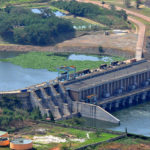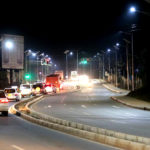The International Finance Corporation (IFC) of the World Bank is to provide Bujagali Energy Limited (BEL) with a refinancing loan of US$160 million to help the company that manages the 250 MW Bujagali Hydropower dam repay the existing loans in a move that should see a reduction of electricity tariffs.
“IFC intends to provide an A loan of up to US$100 million and a B Loan of up to $60 million. In addition, IFC will also help raise the debt financing needed to complete the financing plan and will provide client risk management instruments,” reports say.
The company needs US$500 million to refinance its existing loans and to fund costs associated both with the prepayment of existing loans and the refinancing. The amount is expected to be financed through long-term senior debt.
The US$100 million will be utilised to refinance the company’s existing debt.
However, the new proposed refinancing investment is not expected to result in any change to the project’s physical or operational footprint or to its current power transmission arrangements.
“The refinancing will lengthen the tenure of the company’s existing loans and therefore reduce the amount of annual debt service and, in turn, lower the project’s tariff under the power purchase agreement with UETCL,” officials say.
The new loan is expected to make the electricity in Uganda more affordable and is expected to support the government’s increasing electricity access agenda in the country. Bujagali’s power generation tariff stands at US$0.13 (Shs467) per unit, to US$0.5 (Shs179) per unit.
Located on Dumbbell Island, on the Nile River 8 km north of Jinja, Bujagali was commissioned in 2012 and sells its entire output under a 30-year power purchase agreement with Uganda Electricity Transmission Company Limited. The project generated 44 per cent of Uganda’s electricity in 2016.
Large manufacturers under the Uganda Manufacturers Association (UMA), have consistently said the high electricity tariffs are causing local products to become non-competitive against foreign goods.
The government undertook to reduce electricity prices by granting of a five-year corporate income tax break to BEL. This measure alone was expected to reduce BEL’s generation tariff by US$0.87 (Shs31). But that meant government would have to sacrifice Shs80 billion (US$22 million) it would have collected from BEL in taxes.








